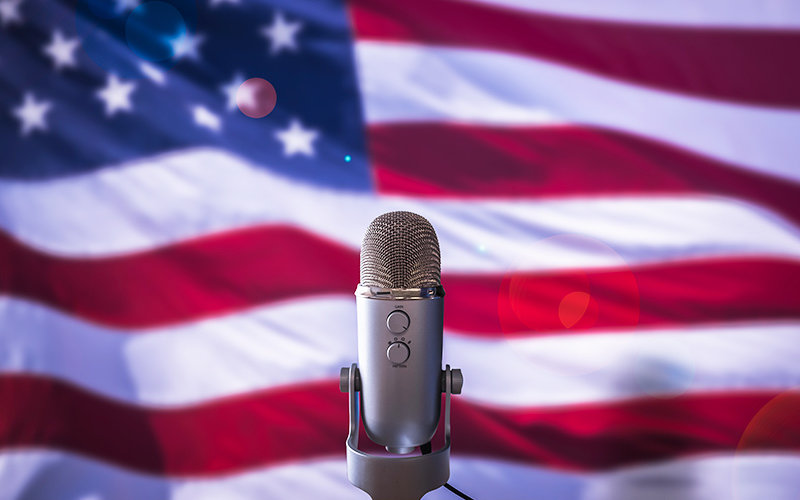
Given President Donald Trump’s COVID-19 diagnosis, there is a higher level of interest in and scrutiny of this year’s vice presidential candidates, who are set to debate Oct. 7.
Cal State Fullerton faculty members Iris Blandón-Gitlin and Peter Lee explain what viewers can watch for — beyond listening to their words — to better understand Vice President Mike Pence and Sen. Kamala Harris during the event.
“Research has shown that on average, the first seven seconds is important for anyone to make a positive first impression,” said Peter Lee, lecturer in human communication studies. “From the first televised debate between Nixon-Kennedy to the last presidential debate between Clinton-Trump, first impressions were found to be good indicators of a candidate’s credibility.”
Candidates subtly communicate who they are — or at least who they want viewers to think they are — through how they greet one another, the position of their hands and body at the lectern, eye contact and facial expressions. Even the color of their outfits can send a message. Congresswomen famously wore “suffrage white” to the 2019 State of the Union address to express solidarity and declare women are an important voting bloc that would be heard.
Viewers should keep in mind that all of these non-verbal communications are carefully thought through and intentional. So perhaps a better window to a candidate is his or her behavior during breaks and at the end of the debate. “People act differently when they are on or off camera,” Lee noted.

Iris Blandón-Gitlin, professor of psychology
Can we tell if candidates are lying?
Iris Blandón-Gitlin, professor of psychology, an expert on the psychological aspects of deceptive behavior, has found that unscripted moments are indeed the most telling when it comes to determining a person’s authenticity.
“Lying can be difficult and mentally taxing, especially if the liar has to fabricate a story spontaneously,” explained Blandón-Gitlin. “Our research has shown that asking unanticipated questions and inducing interviewees to respond quickly increases mental strain and elicits more evasive and inconsistent answers from liars than from truth-tellers.”
Noting those evasiveness and inconsistency cues, police officers and college students in the study were able to discriminate between the truth-tellers and liars with 90% accuracy.
The problem in a political debate, said Blandón-Gitlin, is that candidates are professionally rehearsed with coaches. “These coaches will watch their candidate for behavior that even smells of lying, emotional discord or incongruity. The candidates will rehearse the answer until that ‘tell’ is extinguished and the message is perceived by the audience as authentic and sincere.”
Blandón-Gitlin’s research has indeed shown that when a person has “high cognitive load” (is mentally fatigued), it’s harder for them to lie effectively, but preparation can counter this.
In one of her studies, participants who prepared ahead of an interview did much better at lying and telling the truth than the unprepared interviewees, even those who were mentally fatigued. (That group had participated in an exercise prior to the interview to overload them cognitively.)
What can viewers look for in the debate?
Beyond catching Pence and Harris in unscripted moments, Blandón-Gitlin recommends listening to what each candidate says in response to the debate questions, and noting evasive answers and inconsistencies.
Liars’ responses may differ in other ways as well. “We conducted a large-scale statistical review of verbal cues to deception and found that relative to truth-tellers, liars’ responses expressed negative emotions, a distance from events, and fewer sensory and perceptual details,” she shared. “Candidates might counteract surprise and cognitive load with stalling tactics — repeating an aspect of a question or statement, providing irrelevant details, pausing and inserting fillers.”
In the end, though, being educated about the issues goes a long way in helping people assess truthfulness or deception. Research has shown familiarity with a topic improves lie detection accuracy significantly.
“The best approach to making an informed decision is to be attentive and knowledgeable,” Blandón-Gitlin concluded.
Learn more about Blandón-Gitlin’s research on her Department of Psychology page.
Contact: Karen Lindell, klindell@fullerton.edu